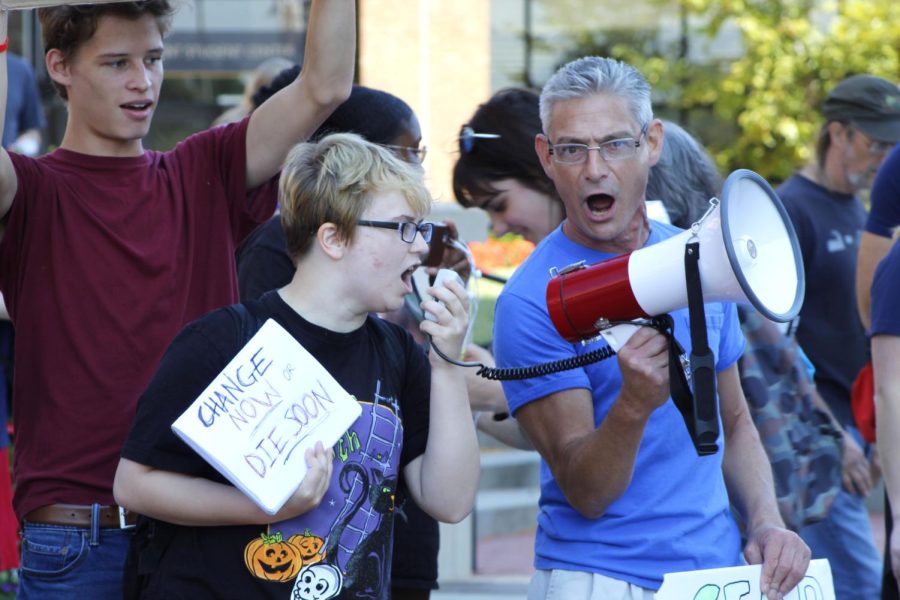OPINION: System change, not climate change
Protestors shout chants through the megaphone at the Kent Climate Strike on Sept. 20 on Risman Plaza. Chants includes phrases such as “Hey hey, ho ho. Oil Lobbies got to go.”
October 15, 2019
Climate change has been an issue in American politics for quite some time, but it has never been a more pressing issue than it is right now.
According to NASA, roughly 97 percent of scientists agree climate change poses a significant threat to society. Millions of people across the globe are taking to the streets to protest the lack of action being taken by their respective governments.
While these protests are an amazing step forward, they generally lack a very important element in understanding the crisis and what must be done to combat it. The climate change movement needs to realize that it’s part of a much larger class struggle; climate change is the direct result of the unchecked and ever-expanding capitalist system we live under.
Our current economic system exists with the sole aim of creating a profit, to accumulate capital by converting nature into commodities to be bought and sold. It is completely indifferent to whatever havoc it wreaks on the environment or the workers it exploits in this quest to hoard more and more wealth.
This indifference can be seen in a report by the Carbon Disclosure Project, a non-profit organization watching global emissions, which found since 1988 merely 100 corporations were responsible for nearly 71 percent of all global greenhouse gas emissions. This goes against the narrative that most environmental groups, activists and politicians have been pushing for the last decade: by making small individual changes in our consumption we can combat the crisis.
I’m sure we’ve all been told that we need to recycle, change our light bulbs, buy organic food, go vegan, buy a hybrid car, etc. None of these things matter if we don’t address the larger issue: the fact that climate change is a class struggle, it’s a competition of the wealthy elite against the average working people.
The wealthy elite don’t want to see the status quo changed because they’re unlikely to suffer the consequences and it would mean diminishing or possibly eliminating their profits. They have spent billions of dollars in lobbying politicians and funding bogus think tanks to confuse and further divide the public. To them, their investments take higher precedence than the preservation of the natural world which we all live in.
This lack of concern is exemplified by the fact that their lifestyles, the lifestyles of the richest 42 million people, produce more emissions than the poorest three billion people. To put that in a more imaginable perspective, the richest half of one percent produces more lifestyle emissions than that of the combined bottom fifty percent of the world’s population.
To prevent catastrophe, we need to cut emissions by at least 45 percent before 2030 and the only way to do so is through a radical economic overhaul. A carefully planned economy where major industries, utilities and services are publicly owned is necessary for making sure fossil fuel consumption is phased out in favor of more environmentally conscious alternatives.
Colt Hutchinson is a guest columnist and the president of Students for a Democratic Society. Contact him at [email protected].












